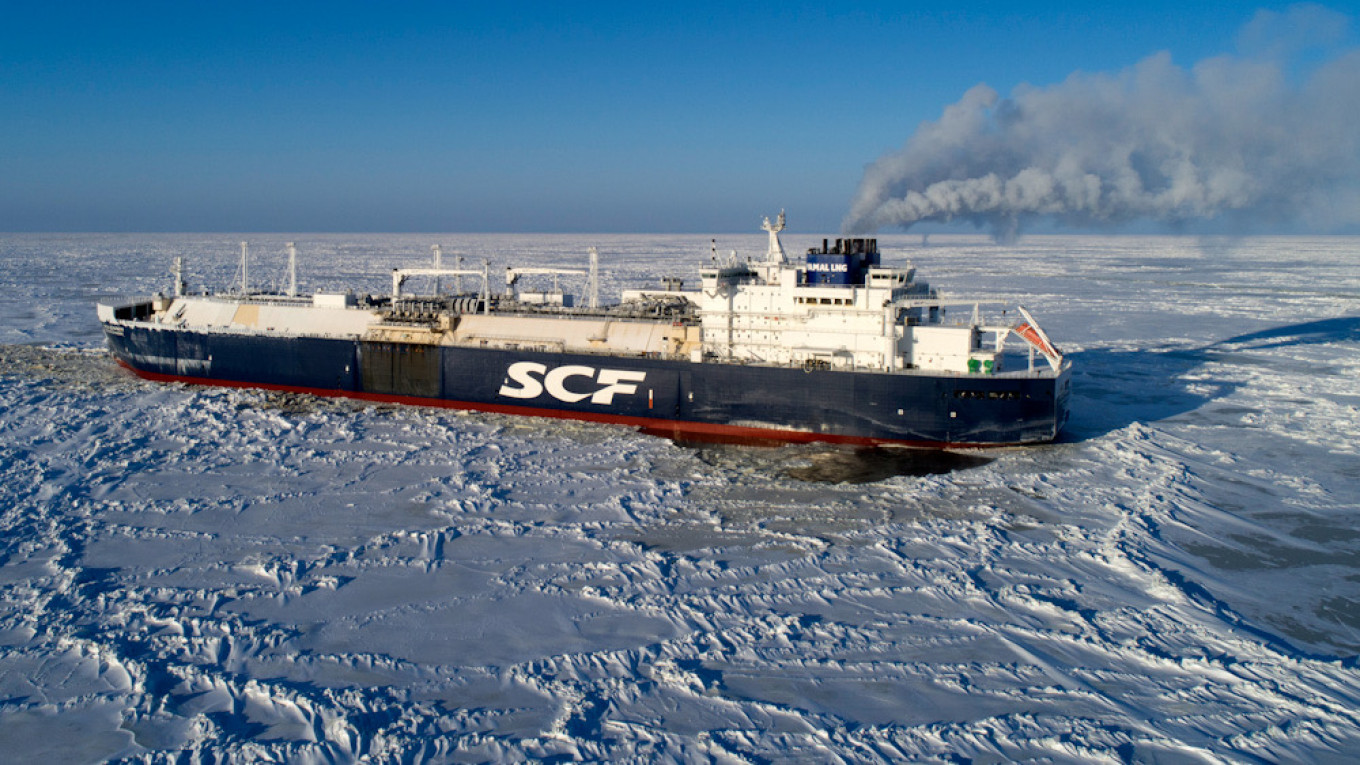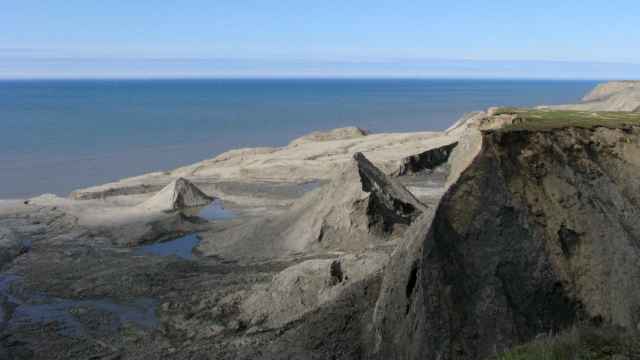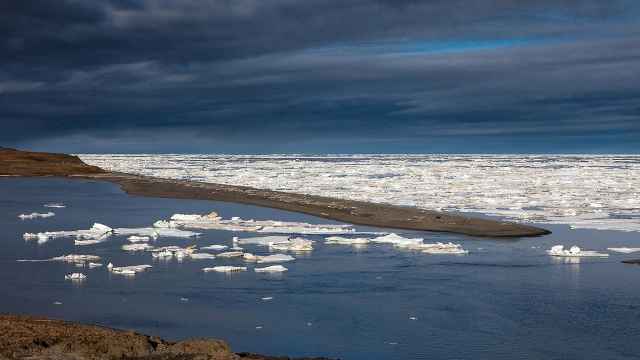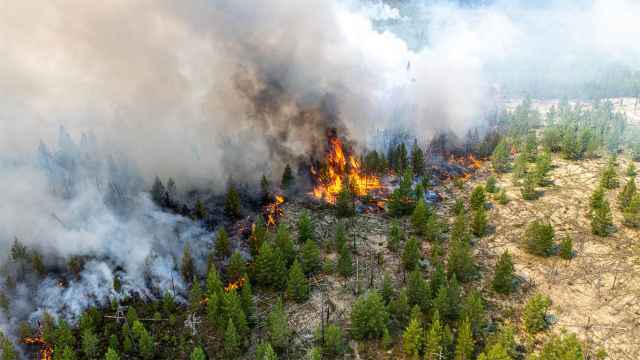A powerful Russian icebreaker has crossed the Northern Sea Route for the first time at this time of year as ice coverage shrinks in the rapidly melting Arctic.
The liquefied natural gas (LNG) tanker Christophe de Margerie made it through the Chukchi Sea and into the Bering Strait on Saturday, Jan. 16, after 10 days in thick sea ice.
“It is a historical day for the development of the Northern Sea Route and national shipping,” Transport Minister Vitaly Savelyev said Monday.
He said the voyage, which shows the shipping route can be used for an extra one to two months every year, is “a step toward year-round commercial shipments on the route.”
Christophe de Margerie captain Sergei Gen told Savelyev via video call Monday that the voyage from the Sabetta LNG terminal in northwest Siberia’s Yamal to the Bering Strait took a total of 10 days and 21 hours.
The distance was 2,474 nautical miles, about 65% of which was sailed astern, or backwards. The average speed was 9.5 knots and there was no need for external icebreaking assistance, Gen said.
The Christophe de Margerie set sail from Sabetta to the Chinese port of Dalian on Jan. 5. Similarly, another icebreaker, the Nikolai Yevgenov departed from the same LNG terminal the next day and made it into the Bering Strait on Sunday.
At the same time, the gas tanker Nikolai Zubov sailed in the opposite direction from Dalian and arrived in Sabetta on Saturday.
All the carriers are part of the fleet of 15 vessels that serve the Yamal LNG project. They can all carry up to 70,000 tons of liquified natural gas, and all have ice class Arc7, which enables them to autonomously break through up to 2.1 meters of sea ice.
The fleet of LNG carriers are instrumental in Russia’s ambitious plan for the Northern Sea Route. In 2020, a total of 32.97 million tons of goods was shipped on the Northern Sea Route, up 1.5 million tons from 2019.
By 2024, the Kremlin intends to boost volumes on the Northern Sea Route to 80 million tons, and to 130 million tons by 2035.
A Message from The Moscow Times:
Dear readers,
We are facing unprecedented challenges. Russia's Prosecutor General's Office has designated The Moscow Times as an "undesirable" organization, criminalizing our work and putting our staff at risk of prosecution. This follows our earlier unjust labeling as a "foreign agent."
These actions are direct attempts to silence independent journalism in Russia. The authorities claim our work "discredits the decisions of the Russian leadership." We see things differently: we strive to provide accurate, unbiased reporting on Russia.
We, the journalists of The Moscow Times, refuse to be silenced. But to continue our work, we need your help.
Your support, no matter how small, makes a world of difference. If you can, please support us monthly starting from just $2. It's quick to set up, and every contribution makes a significant impact.
By supporting The Moscow Times, you're defending open, independent journalism in the face of repression. Thank you for standing with us.
Remind me later.






